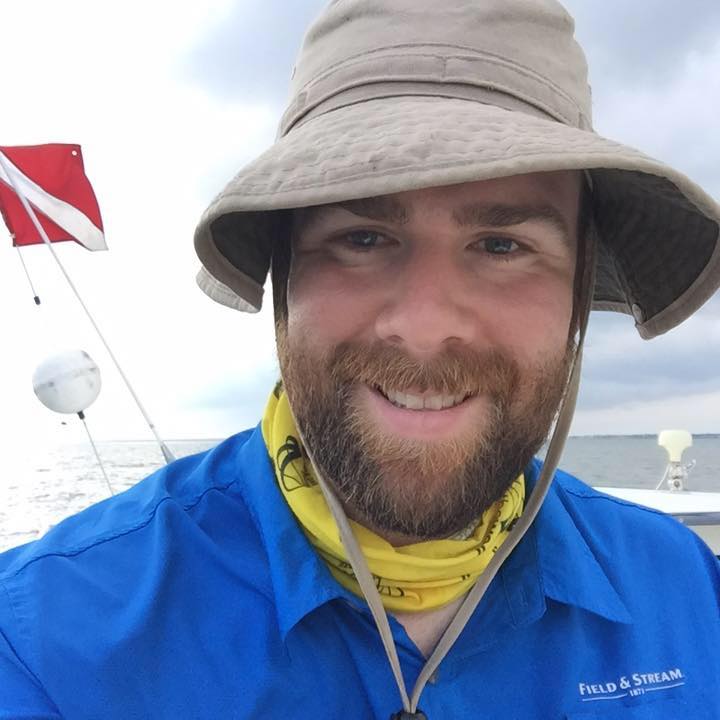Principal Investigator: Will White

I am a quantitative fisheries ecologist who links models to data to understand ecological mechanisms and inform management.
I began my career in graduate school at UC Santa Barbara as a field ecologist studying Caribbean reef fish behavior and population dynamics. As a postdoctoral scholar at UC Davis I developed spatialpopulation models to advise the placement of California’s marine protected areas through my work with the Marine Life Protection Act Initiative. Since then I have tended to blend empirical and theoretical research; I find that my experience in the field grounds my models in reality and improves the communication of my results, while my modeling expertise leads to creative analyses and new insights with field data. I am broadly interested in spatial fisheries management, the short-term dynamics of population responses to management, and the effects of climate variability and climate change on populations and fisheries.
I was on the faculty of UNC Wilmington from2010-2017 before joining the Coastal Oregon Marine Experiment Station in 2017. I am also a co-PI in the Partnership for Interdisciplinary Study of Coastal Oceans (PISCO).
email: will.white@oregonstate.edu
Postdocs
Laura Storch
Laura is an applied mathematician who is studying various aspects of the population dynamics of Eastern Oysters.
Jess Hopf
Jess is a mathematical ecologist who studies the population dynamics of fishes inside marine reserves.
Fabio Caltabellotta
Fabio is a fisheries scientist. He is investigating the effects of uncertainty in age-size relationships on fishery stock assessment results. He also serves on the Pacific Fishery Management Council’s Scientific and Statistical Committee.
Graduate Students
Victoria Quennessen (Ph.D.)
Victoria is using population models to investigate how marine protected areas could be used as unfished reference points for fishery management. (email: victoria.quennessen@oregonstate.edu)
Jennifer Fisher (Ph.D.)
Jennifer is using a combination of time series and state-space methods to investigate the links between ocean conditions and the population dynamics of zooplankton on the Oregon shelf. She is completing her degree while also working as a research associate at the Cooperative Institute for Marine Resource Studies and NOAA.
Montana McLeod
Montana is developing population models that can account for the effects of coastal hypoxia on the movement and detectability of groundfish in fishery-independent surveys.
Lab Alumni
Christian Commander (Ph.D.)
I am a Ph.D. Candidate in Marine Biology through the University of North Carolina, Wilmington. I hold a B.S. in Animal Biology from the University of California, Davis and a M.S. in Ecology, Evolution and Conservation from California State University, Sacramento. My research interests are centered around using quantitative ecology to inform conservation. For my dissertation research I’m using models and field data to examine how environmental disturbances affect predator-prey interactions and population persistence. Outside of research, I am passionate about teaching, community service, sports, and outdoor recreation.

Alicia Cheripka (UNCW M.S., 2018)

Alicia used theoretical population modeling to investigate how we could use marine protected areas to manage species whose geographical ranges are shifting due to climate change. She is currently serving as a NOAA Sea Grant Knauss policy fellow.
Caitlin Phelps (UNCW M.S., 2017)
Caitlin’s thesis examined the potential for artificial selection to produce a positive correlation between maternal size and offspring quality, using guppies as a model system.
Erin Easter (UNCW M.S., 2016)
Erin used population models to show how marine protected area planning and adaptive management should be adjusted to accommodate fish that are sequential protogynous hermaphrodites; that is, they begin life as female but change sex to male when larger. She is currently a graduate admissions advisor at the University of Missouri.
Easter EE, White JW. 2016. Spatial management for protogynous sex-changing fishes: a general framework for coastal systems. Marine Ecology Progress Series 543: 223-249

Andrea Dingeldein (UNCW M.S., 2015)
Andrea used the record of early life history traits (larval growth and condition) preserved in the otoliths of coral reef fish to investigate the link between larval traits and post-settlement behavior. She is now an instructor at the CSUMB Scientific Illustration Program and freelance illustrator (website).
Dingeldein AL, White JW. 2016. Larval traits carry over to affect post-settlement behaviour in a common coral reef fish. Journal of Animal Ecology 85: 903-914

Melissa Heintz (UNCW M.S., 2015)
Melissa’s thesis examined the effects of endocrine disrupting compounds on anti-predator behavior in guppies. She is now a Ph.D. student in toxicology at Clemson.
Heintz MM, Brander SM, White JW. 2015. Endocrine disrupting compounds alter risk-taking behavior in fish (Poecelia reticulata). Ethology 121:480-491
Ashley Hann (UNCW Honors, 2017)
Hannah Sipe (UNCW Honors, 2014)
Emma Bogdan (UNCW Honors, 2014)
Erin McCarthy (UNCW Honors, 2014)
Erin investigated the spatial foraging decisions of guppies and their consequences for prey mortality.
McCarthy EK, White JW. 2016. Density-dependent prey mortality is determined by the spatial scale of predator foraging. Oecologia 180: 305-311
Kaela Vogel (UNCW Honors, 2014)
Amanda Jefferson (UNCW Honors, 2013)

Matt Birk (UNCW Honors, 2013)
Matt’s thesis investigated the spatial foraging behavior of guppies. He is now a PhD candidate studying cephalopod behavior at the University of South Florida.
Birk MA, White JW. 2014. Experimental determination of the spatial scale of a prey patch from the predator’s perspective. Oecologia 174: 723-729
Julianna Schroeger (UNCW Honors, 2013)
Julianna’s thesis involved applying spatial population models to the marine protected area network designs created by the spatial planning software MARXAN. Her work helped determine whether and when spatial planning works better when information about larval connectivity is included. She now works as Program Coordinator at the Rockaway Waterfront Alliance.
White JW, Schroeger J, Drake PT, Edwards CA. 2014. The value of larval connectivity information in the static optimization of marine reserve design. Conservation Letters 7: 533-544

Whitney Wilson (UNCW Honors, 2012)
Whitney’s thesis involved studying the link between larval traits of coral reef fish (recorded in their otoliths) and their post-larval-settlement behaviors.

